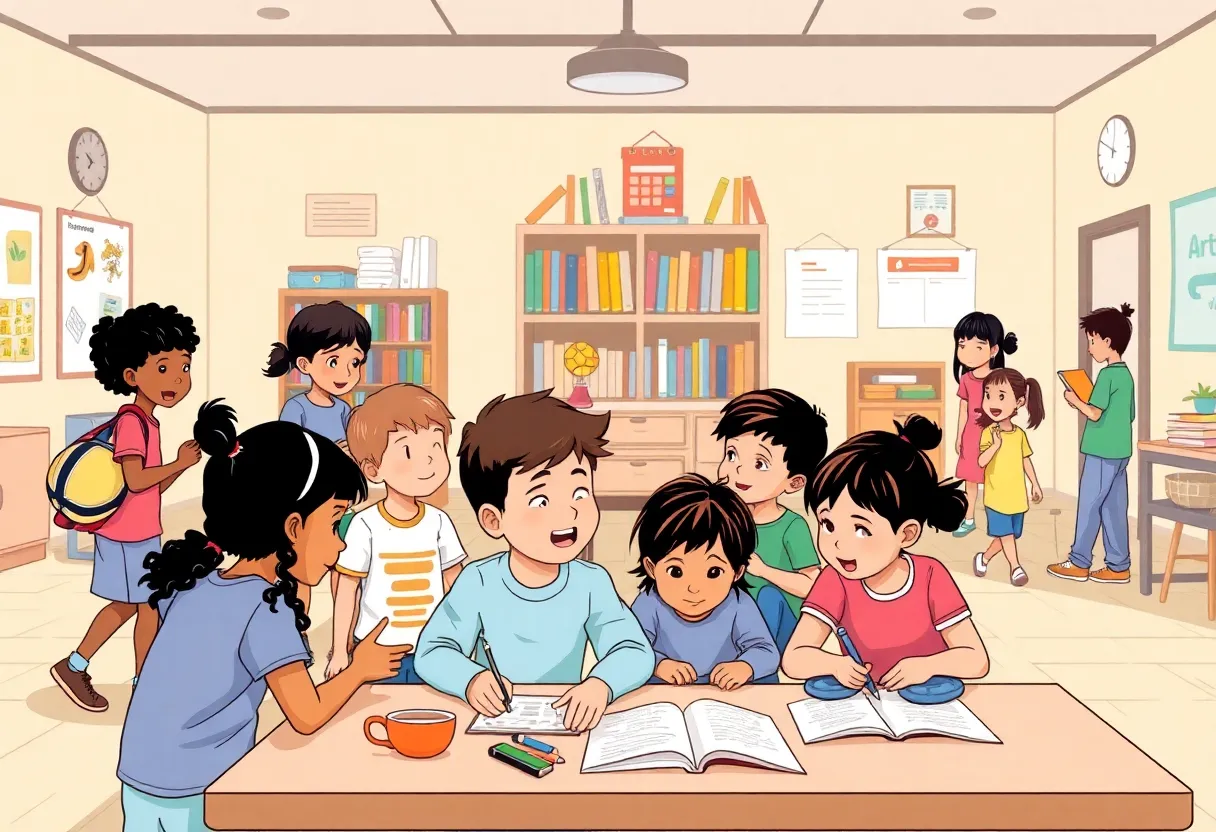News Summary
The recent release of frozen federal funds for after-school programs is set to alleviate concerns for parents as the new school year approaches. The funds, previously held up by the Trump administration, will benefit organizations like the Boys & Girls Club in Augusta, which serves over 6,500 children. Educational leaders express relief over the funding’s significance, particularly in improving graduation rates. As the school year nears, community organizations prepare to enhance support for children’s education and well-being.
Augusta, Georgia – The recent release of frozen federal funds for after-school programs is set to ease concerns for parents as the new school year approaches. The funding, which had been held up by the previous Trump administration, will begin disbursing next week, providing critical financial support for organizations like the Boys & Girls Club of Greater Augusta.
The Boys & Girls Club currently serves more than 6,500 children, with approximately 1,300 attending daily. This organization, among others benefiting from the federal funds, plays a pivotal role in keeping children engaged in safe and productive activities after school and during summer months. The financial aid is expected to significantly bolster after-school initiatives aimed at preventing children from engaging in risky behaviors.
Both Georgia and South Carolina’s state superintendents have expressed great relief over the funds’ release, underscoring their importance in helping students reach their full potential. This funding is particularly crucial as it follows a previous freeze that left over $200 million in federal education grants in limbo across Georgia. With the beginning of the school year imminent, the urgency to access these resources has never been higher.
The impact of after-school programs is starkly illustrated by the low graduation rates in certain areas. In Richmond County, the overall student graduation rate stands at just 20%. This figure highlights how vital after-school interventions can be in improving educational outcomes. In contrast, the graduation rate for seniors at the Boys & Girls Club reaches an impressive 98%, showcasing the organization’s effectiveness.
Additions to the new school year include important educational shifts, such as third, fourth, and fifth graders in Georgia being introduced to cursive writing. This curricular change represents an effort to blend traditional skills with contemporary education, further emphasizing the importance of comprehensive educational support.
In an additional effort towards community engagement, the Richmond County Sheriff’s Office plans to strengthen relationships with local youth. This initiative aims to foster trust and safety within the community, offering an alternative path for young people to seek support and mentorship.
The funding freeze itself was justified by the Office of Management and Budget, which cited concerns about potential misuse of funds for what it described as a “radical left-wing agenda.” This rationale faced significant scrutiny from local advocates, who have been vocal about the need for resources to support educational programs and community services.
As this funding comes through, local groups are actively collecting school supplies in preparation for the new academic year. However, disparities in funding sources have led some local organizations to face challenges. The Senior Citizens Council of Greater Augusta, for example, will be closing its doors on July 31 due to funding cuts, revealing the broader impacts of financial decisions in the educational and community support landscape.
State legislators, including Senator Reshaun Kemp, have called for action to resolve ongoing disputes regarding state funding. There is a growing appeal for Governor Brian Kemp to intervene and provide the necessary support to ensure that education and community programs are adequately supported.
The release of these federal funds for after-school programs marks a significant step forward for Georgia and South Carolina, alleviating some of the immediate concerns parents faced as the school year looms. As communities work to make the most of this financial relief, they aim to create an enriching environment that nurtures the development and well-being of children.
Deeper Dive: News & Info About This Topic
- WRDW: Federal Release After-School Funds Relieves GA, SC Leaders
- Wikipedia: After-school_programs
- WJBF: Boys & Girls Clubs of Greater Augusta Needs Community Help
- Google Search: After-School Programs
- WRDW: CSRA’s Boys & Girls Clubs Fight to Stay Open
- Google Scholar: After-School Interventions
- The Augusta Press: Debit Card Program Brings in Thousands for Richmond County Schools
- Encyclopedia Britannica: Educational Program
- Augusta Chronicle: Augusta Schools Georgia Promise Scholarship
- Google News: Georgia Promise Scholarship

Author: STAFF HERE AUGUSTA WRITER
The AUGUSTA STAFF WRITER represents the experienced team at HEREAugusta.com, your go-to source for actionable local news and information in Augusta, Richmond County, and beyond. Specializing in "news you can use," we cover essential topics like product reviews for personal and business needs, local business directories, politics, real estate trends, neighborhood insights, and state news affecting the area—with deep expertise drawn from years of dedicated reporting and strong community input, including local press releases and business updates. We deliver top reporting on high-value events such as Arts in the Heart Festival, Westobou Festival, and Masters Week. Our coverage extends to key organizations like the Augusta Metro Chamber of Commerce and Greater Augusta Arts Council, plus leading businesses in manufacturing and healthcare that power the local economy such as Textron Specialized Vehicles, Cardinal Health, and Nutrien. As part of the broader HERE network, including HEREAtlanta.com and HERESavannah.com, we provide comprehensive, credible insights into Georgia's dynamic landscape.


